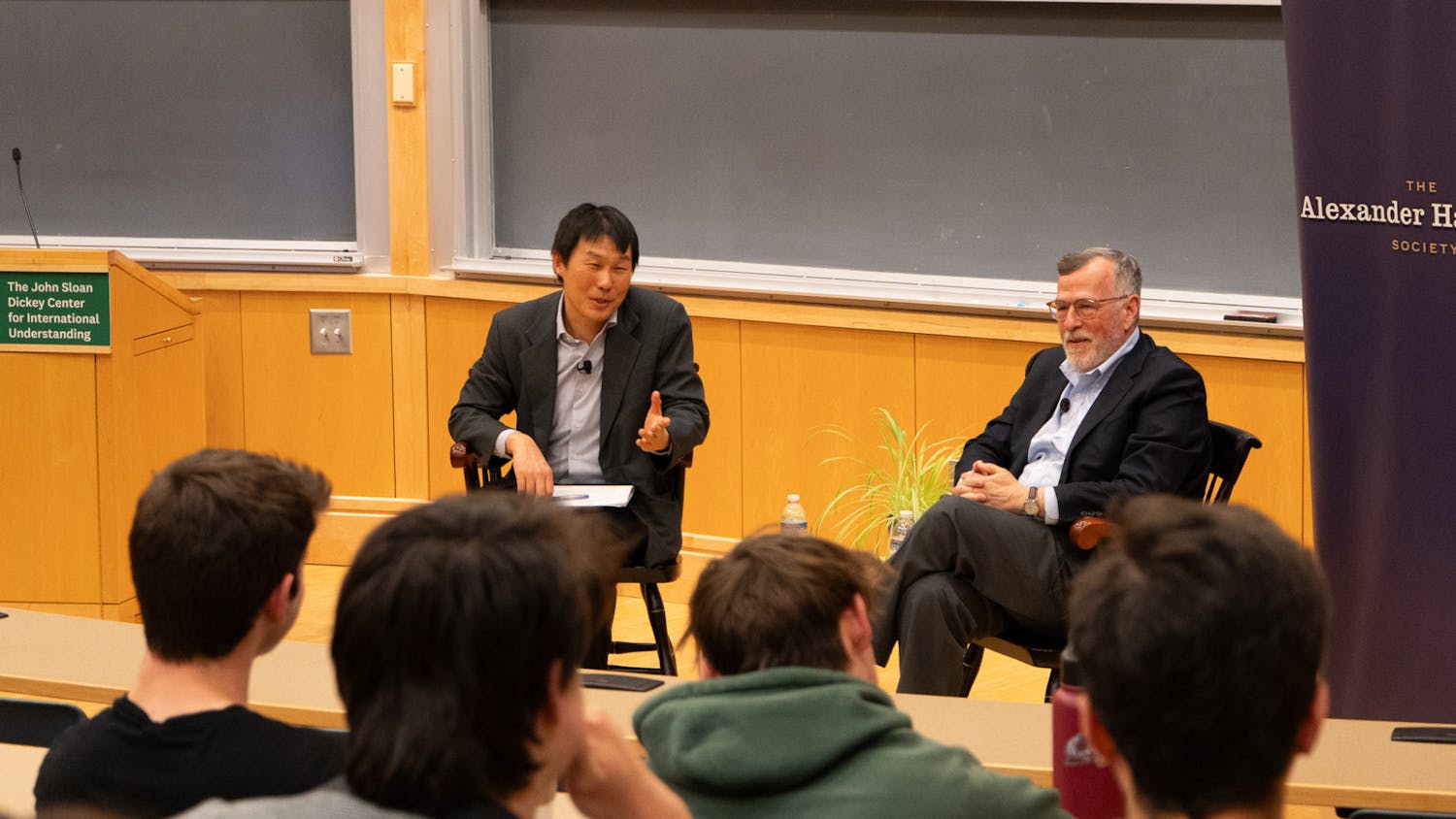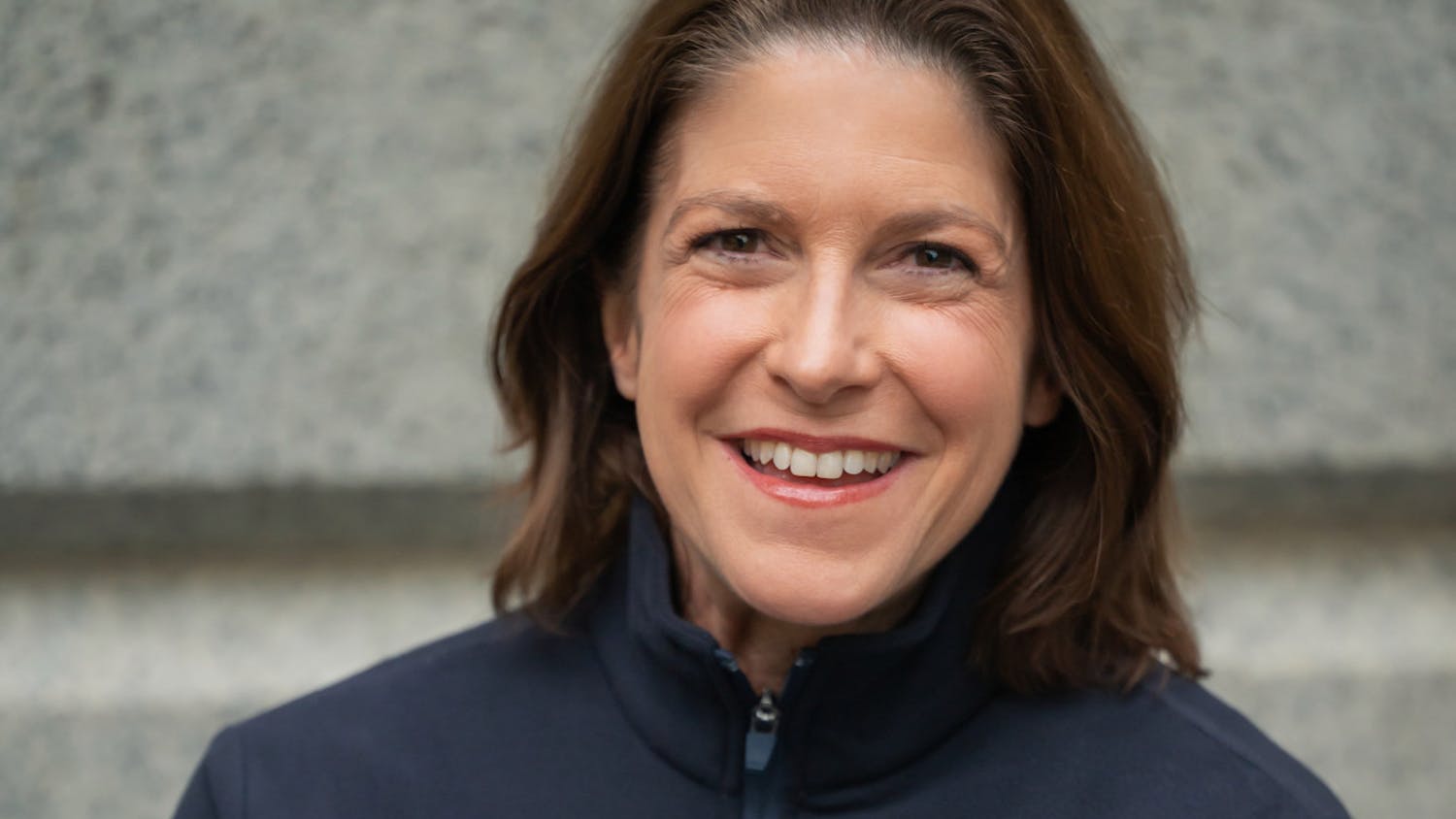In a series of attempts to combat high-risk drinking on campus, the College has initiated a number of programs that facilitate the collection of data on student alcohol consumption. Approximately a year after the implementation of Green Team and changes to the Brief Alcohol Screening and Intervention for College Students program, the data show that these initiatives may be reducing harm associated with alcohol on campus, according to students and administrators associated with these programs.
Green Team, a student-run group that provides sober monitors to campus parties, has collected data on its interventions and successes since its creation, according to Jeffery Millman Tu '12, who started the program at Dartmouth in February 2011. At parties monitored by Green Team since its inception, only two students have required transport to Dick's House or hospitalization, and only one of those students became intoxicated primarily at the monitored party, according to Millman.
The number of medical transports from parties at which Green Team was present, however, does not necessarily speak to the monitors' effectiveness, since students may leave these parties intoxicated and only seek assistance after moving to a different location, according to Aurora Matzkin '97, the president's special assistant for student health. Relying on this number as an indicator of success may also create a disincentive for Green Team members to seek medical help for students who need it, she said in an email to The Dartmouth.
Over the past year, Green Team members have taken "direct action" with students at least 3,000 times, according to Millman. Green Team members are trained to talk to students that appear to be drinking too heavily, offer water and pizza and help students back to their rooms, Millman said.
About 50 students sign up each weekend to be "on call" for Green Team. More than 425 students have completed Green Team training and 356 students have signed up to "possibly work," according to Millman.
At $11 an hour, Greek Team is the highest paying campus job for which any student is eligible, according to Millman. The College provides funds to pay students and for water and pizza in "party packs" delivered to parties, Millman said.
Because Green Team is not an enforcer of College policy, members can increase safety at the "riskiest" parties, which often violate College policy, according to former Student Body President Max Yoeli '12. Yoeli worked with Millman to customize the Green Team program to maximize effectiveness and said that Green Team's access to unregistered parties is especially useful during Summer term, when none of the parties on campus are registered with the College.
"Without that tenet, Green Team would have never worked," Yoeli said.
While Green Team's presence at parties that violate Dartmouth policy does not give the organization the right to violate policy itself, College administrators recognize the importance of increasing student safety at these types of events, Alcohol and Other Drug Education Program Coordinator Brian Bowden said.
"The College is aware that these types of unregistered parties take place, and if they are going to be taking place, then we're better off having people with training in those settings," Bowden said.
Bowden said that Green Team also provides the College with an important new source of data. While the information that Green Team collects does not identify individual cases, statistics about how many interventions were necessary over a period of time can help Dartmouth judge the success of its initiatives to combat binge drinking.
"It's a new data set," Bowden said. "We're hoping over time we will be able to show that those parties that have Green Team have less risk associated with alcohol consumption."
Millman said he modeled the Green Team program after the Quaker Bouncer program at Haverford College, which he started eight years ago. Haverford students are 85 percent less likely to be hospitalized at a party when members of the Quaker Bouncer program are present, according to Millman.
Other College initiatives to combat binge drinking include the BASICS program, previously known as Diversions, which is administered to all students who have been involved in an alcohol-related incident that violates College policy, with cases ranging from alcohol possession in a residence hall to hospitalization for alcohol poisoning, according to Bowden. The program consists of an online survey that helps profile the student's alcohol use in comparison to that of other college students, followed by a 30-minute interview with Bowden.
While Dartmouth has had some form of post-incident alcohol screening in place since the 1990s, over the past year, administrators more closely tracked the data collected through the process. Bowden said that data obtained at Dartmouth as well as other colleges indicate that the BASICS program reduces the alcohol consumption of participants.
Matzkin said that the alcohol consumption of 94 students was recorded during Fall term, both before they attended the interview with Bowden and again 90 days later. Students reported having 50 percent fewer drinks three months after the initial survey.
Alcohol consumption rates are determined by asking students to chart the number of drinks consumed each day during the two weeks prior to the survey's administration, according to Matzkin.
Based on the positive results shown by BASICS data thus far, the College plans to extend the program to Dartmouth athletics and among other constituencies, Matzkin said.
Because of the high levels of student engagement with and unique nature of Green Team and the Quaker Bouncer program, other colleges have expressed interest in similar programs, Millman said. Recently, for example, representatives from Southern Methodist University spoke with the undergraduate student board of Green Team about their interest in developing such an initiative.



